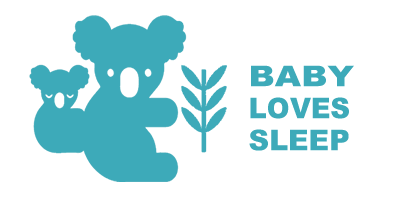Your Cart is Empty
$8 FLAT RATE SHIPPING USA | PAY IN 4 WITH SEZZLE
$8 FLAT RATE SHIPPING USA | PAY IN 4 WITH SEZZLE
Can teething cause sleep disruptions?
April 21, 2021 2 min read
Teething is a subject that seems to divide parents. Either you’re lucky enough to have an unfazed baby who simply wakes up one morning with a brand new tooth, or you’re the opposite, with a baby who has all sorts of trouble coping with the arrival of their new pearly whites.
Whatever the case may be for your family, teething and sleep disruptions often go hand in hand.
So how do you know if your child is teething?
Each child is different, however the most common signs of teething may include:
- Increased waking during the day and night
- A fussier than normal disposition
- Baby rubbing or pulling their ears
- Excessive dribbling
- Teething rashes – either around the mouth or in their nappy area. Our all natural Baby Skin Balm is perfect for helping to soothe those angry rashes
- Biting during feeds
- Refusing food, whether milk or solids
With all those possible symptoms, is it any wonder why teething affects sleep the way that it does?
Teething often makes for very sore gums, but there are many safe options available to try and help your little one to feel better as they ride out the journey:
- Give your baby a safe teething toy! Our K-BEAR silicone teether is fantastic for little hands to grip and for little gums to gnaw on. It meets the highest AU/NZS safety standards and its dual texture design brings relief to those sensitive spots.
- Offer a washcloth to chew on. Cold temperatures are very soothing on inflamed gums, and it is also a nice distraction for your baby.
- Use a soft brush to rub baby’s gums, applying gentle pressure to the area as you go.
- If your child is experiencing discomfort, you may wish to offer infant-friendly paracetamol.
It is important to be cautious when using teething gels or homeopathic remedies on your baby, and we advise that you always do your research before commencing their use. We always recommend consulting with your doctor or paediatrician regarding any specific medical concerns you may have for your child.
As well as the aforementioned tips, the best thing you can do for your baby is to give them lots of love and comfort while they’re teething, and do your best to stick to your usual sleep routines. Keeping up a familiar bedtime routine should help your little one settle down to sleep – eventually!
Remember to always follow safe sleep guidelines as recommended by the American Association of Pediatrics - sleep baby on back and keep soft objects and loose bedding away from the infant’s sleep area to reduce the risk of SIDS.
Read the American Association of Pediatrics Safe Sleep recommendations in full here
With a little luck and a lot of baby snuggles, that pesky little tooth will make its appearance sooner rather than later, and you’ll have a big toothy grin waiting for you in the morning.
One down, a whole lot more to come!
Subscribe
Sign up to get the latest on sales, new releases and more …
